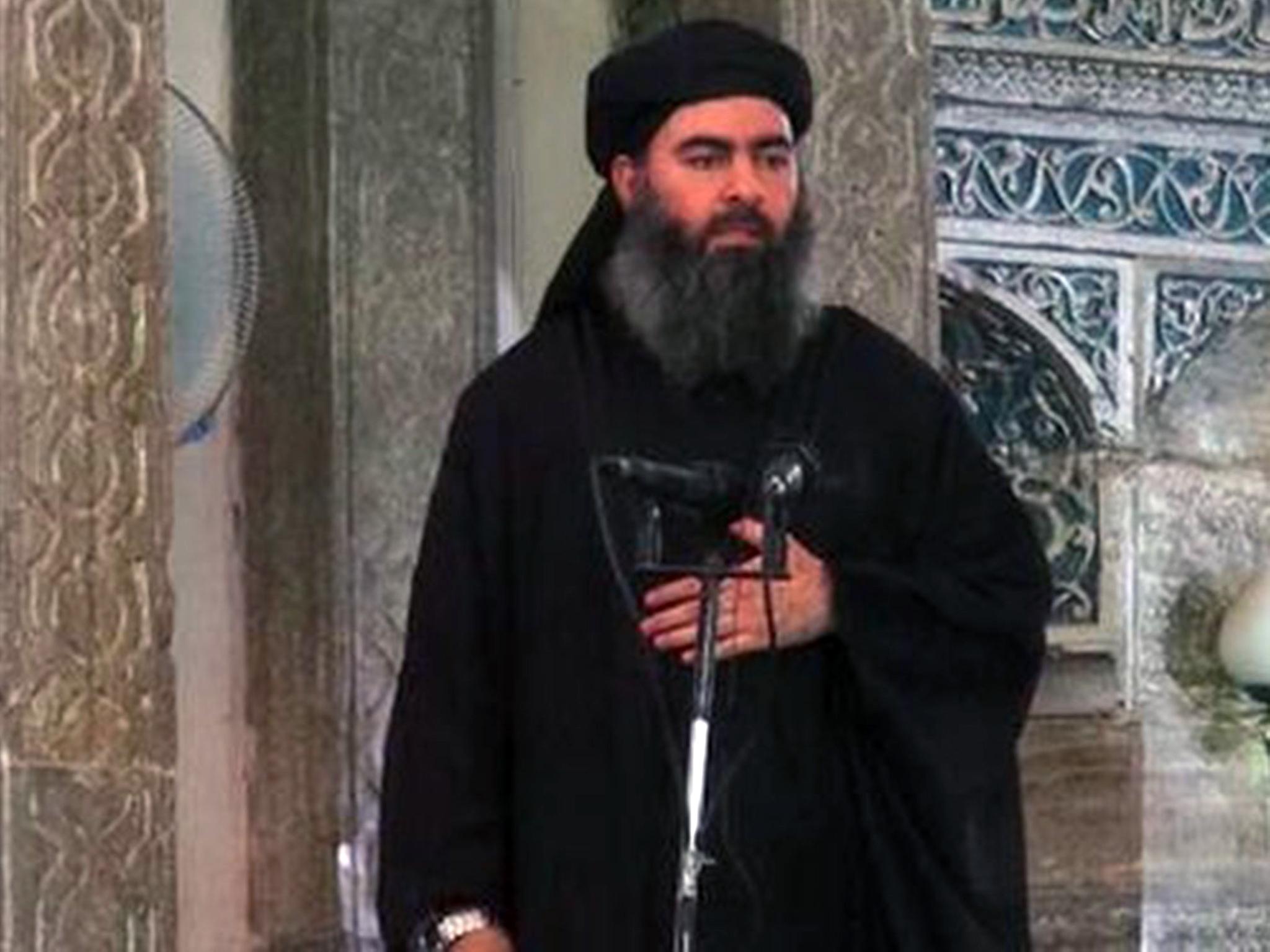Isis commanders killed in Iraqi air strikes targeting Baghdadi, but leader's fate remains unknown
Leading cleric behind Isis’s ideology who last made public address in November has been reported wounded or dead several times before

Your support helps us to tell the story
From reproductive rights to climate change to Big Tech, The Independent is on the ground when the story is developing. Whether it's investigating the financials of Elon Musk's pro-Trump PAC or producing our latest documentary, 'The A Word', which shines a light on the American women fighting for reproductive rights, we know how important it is to parse out the facts from the messaging.
At such a critical moment in US history, we need reporters on the ground. Your donation allows us to keep sending journalists to speak to both sides of the story.
The Independent is trusted by Americans across the entire political spectrum. And unlike many other quality news outlets, we choose not to lock Americans out of our reporting and analysis with paywalls. We believe quality journalism should be available to everyone, paid for by those who can afford it.
Your support makes all the difference.The Iraqi air force has carried out strikes targeting a compound where Isis leader Abu Bakr al-Baghdadi was thought to be meeting other commanders, the military has said.
The names of 13 senior Isis figures killed in the strike in West Iraq on Saturday were published on Monday, but Baghdadi’s was not among them, making it unclear whether the leader had been hit.
At least 64 other lower-ranking Isis fighters were killed in F-16 air strikes on four other extremist targets, a defence ministry statement said.
Iraqi intelligence believes the Iraqi cleric, whose real name is Ibrahim al-Samarrai, travelled from Isis’s de facto capital of Raqqa in Syria to al-Qaim, just over the Iraqi border, to discuss “the collapse happening in Mosul and to chose a successor for him”.
His last public message appeared in November 2016, when he called on Isis supporters to defend the group against the huge US-backed coalition efforts to retake the Iraqi city of Mosul from the extremists’ hands.
The battle – which since mid October has killed at least 1,000 civilians and displaced more than 200,000 from their homes – is still raging, as Iraqi coalition troops and militia forces struggle to make gains in the western side of the city.
Isis captured almost a third of Iraq in its 2014 blitz across the country from neighbouring Syria. While the group lost almost a quarter of its territory in 2016, Iraqi forces are now intent on stopping jihadi fighters from fleeing from West Mosul back into Syria.
Join our commenting forum
Join thought-provoking conversations, follow other Independent readers and see their replies
Comments